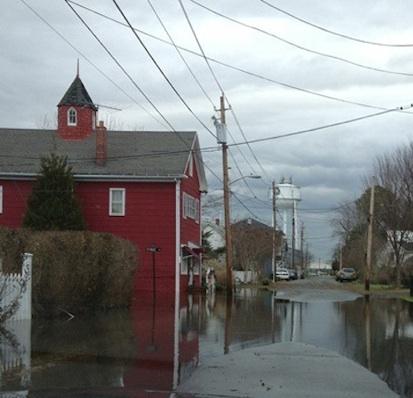EFC’s Work in Oxford Hailed a Case Study in “Consensus on Climate Change” by International Policy Digest
Over the past decade, communities up and down the nation’s eastern shoreline have been battling the particularly biting effects of climate change. Violent storms, erratic weather and devastating floods have become less a rare occurrence and more the new normal. While efforts are in the works on state and federal levels to combat the economic, environmental and social effects of climate change on our coastal towns, some of these communities have come to take matters into their own hands. This month, The International Policy Digest featured the collaborative efforts of the Eastern Shore town of Oxford, Maryland, the University of Maryland’s Environmental Finance Center (EFC) and several other organizations as they developed a plan of attack against the rising tides. Hailed as “a case study in the gumption and patience necessary to orchestrate consensus on climate change,” the piece highlighted the Oxford/EFC partnership as an example of small towns that are proactively preparing for the devastating effects of a changing climate.
The project, which was made possible in part by the National Fish and Wildlife Foundation, studied Oxford’s two biggest environmental hurdles: stormwater infrastructure and shoreline management. Through pubic discussions, educational outreach and technical analysis of the town’s existing stormwater program, the task force, led by EFC Program Manager Sean Williamson, was able to pinpoint the most critical program gaps and citizen concerns to help formulate possible solutions. In December of last year, Williamson presented a comprehensive, 83-page report outlining the study results. In 2014, the study propelled a new stormwater ordinance for Oxford, a motion that will not only support critical water management investments but one that, thanks to significant public education and outreach, is publicly supported.
"Oxford is accustomed to being in the driver’s seat when it comes to adapting to the local environment - many residents have learned to move their vehicles to higher ground and take other preventative actions before major storms,” said Williamson. “The creation of the Stormwater Management and Shoreline Protection Fund only reinforces Oxford's value of self-sufficiency."
While stormwater management is regulated and required in communities of a certain size, Oxford is not large enough to fall under state or federal mandates. The Oxford stormwater project is a notable example of smaller jurisdictions taking their future into their own hands.
“What makes Oxford’s efforts significant is, this is probably the first time we’ve integrated financing for climate change in an unregulated community,” says Joanne Throwe, Director for the EFC. “For Oxford to take on this issue and incorporate long-term planning is groundbreaking.”
The Environmental Finance Center at the University of Maryland is the largest of ten university-based centers across the country, providing communities in Maryland, Virginia, Pennsylvania and West Virginia the tools and information necessary to manage change for a healthy environment and an enhanced quality of life. The Oxford study is one of several projects in stormwater management financing undertaken this past year by the EFC.
“During times when federal and state dollars are dwindling, our primary objective is to help communities develop innovative ways of financing environmental efforts that lead to a stronger, more sustainable way of life,” said Throwe. “The Oxford project is a prime, on-the-ground example of how we change communities.”
For more information on the Environmental Finance Center and the Oxford study, visit the EFC’s website.

